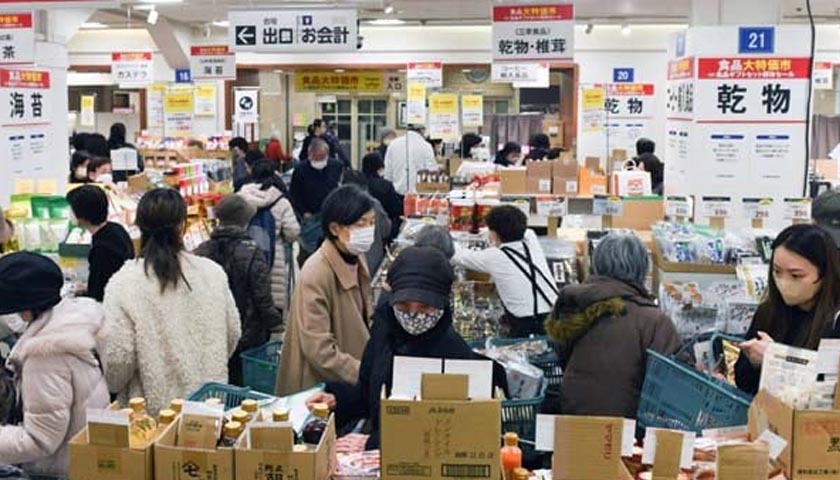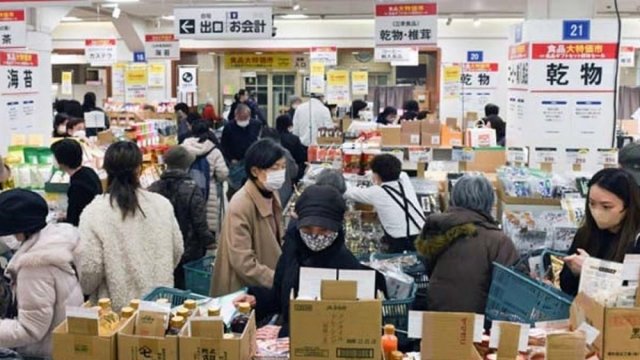apanese consumer inflation slowed to below three percent last month for the first time since August 2022 on the back of easing gas and electricity prices, government data showed Friday.
The annual reading of 2.8 percent, excluding volatile fresh food prices, was just shy of market expectations of 2.7 percent and follows 3.1-percent rises in August and July in the world's number-three economy.
But stripping energy as well as fresh food, Japan's prices rose 4.2 percent, after a 4.3-percent increase in August, data published by the internal affairs ministry showed.
This adds to pressure on Prime Minister Fumio Kishida, whose poll ratings are at their lowest levels since he took over two years ago in part because of voter unease over inflation.

Kishida's government is working on a stimulus package to ease the pain of rising prices on Japanese consumers including through extending fuel and power subsidies.
Kishida, 66, can govern until 2025 but there has been speculation that he might call a snap election ahead of a likely tough internal leadership vote in his ruling Liberal Democratic Party (LDP) next year.
Japan, in common with other economies around the world, has seen prices rise on the back of the Ukraine war, while a weaker yen has also made imports more expensive.
Unlike other major central banks which have raised interest rates, the Bank of Japan has stuck to its ultra loose policy stance in the expectation that inflation will ease, adding to pressure on the yen.source: BSS







